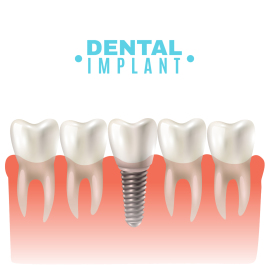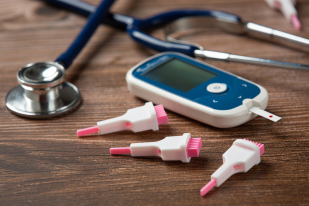Factors that affect Dental Implants
What are the biggest risk factors for dental implant placement?
There are several risk factors that can increase the likelihood of complications or implant failure during or after dental implant placement. Some of the biggest risk factors include:
-
Poor oral hygiene: Maintaining good oral hygiene is essential to the success of dental implants. Poor oral hygiene can lead to infections around the implant, which can cause implant failure.
-
Smoking: Smoking is a major risk factor for implant failure. Smoking can impair the healing process and increase the risk of infection.
-
Medical conditions: Certain medical conditions, such as diabetes, can increase the risk of implant failure. Patients with medical conditions should be evaluated by their dentist and medical doctor before undergoing implant placement.
-
Insufficient bone density: The success of dental implants depends on the amount and quality of bone in the jaw. If there is not enough bone or if the bone is too soft, the implant may not be able to anchor properly and may fail.
-
Bruxism: Bruxism, or teeth grinding, can put excessive pressure on the implant and surrounding bone, leading to implant failure.
-
Gum disease: Gum disease can weaken the bone and soft tissue around the implant, making it more susceptible to failure.
It is important to discuss these risk factors with your dentist and to take steps to minimize them before undergoing dental implant placement. Your dentist will evaluate your individual situation and recommend the best course of action to ensure a successful outcome.
How does smoking affect dental implants?
Smoking can have a significant negative impact on dental implants. Here are some ways smoking can affect dental implants:
-
Reduced blood flow: Smoking can reduce blood flow to the tissues surrounding the implant, which can impair the healing process and increase the risk of infection.
-
Delayed healing: Smoking can delay the healing process after implant placement. This can lead to implant failure, since the implant needs to be fully integrated with the bone in order to be stable and functional.
-
Increased risk of infection: Smoking can weaken the immune system, making it more difficult for the body to fight infections. This can increase the risk of infections around the implant, which can lead to implant failure.
-
Reduced bone density: Smoking can also reduce bone density, which can make it more difficult for the implant to anchor properly. This can lead to implant failure or loosening over time.
-
Implant failure: Studies have shown that smokers have a higher risk of implant failure compared to non-smokers. In fact, some studies have reported that the risk of implant failure is two to three times higher in smokers.
Overall, smoking is a major risk factor for implant failure and can significantly impact the success and longevity of dental implants. If you are a smoker and are considering dental implant treatment, it is important to discuss the risks with your dentist and take steps to quit smoking to improve your chances of a successful outcome.
How does Diabetes affect dental implants?
Diabetes can have a significant impact on dental implants. Here are some ways diabetes can affect dental implants:
-
Delayed healing: Diabetes can slow down the healing process after implant placement, which can increase the risk of implant failure. This is because diabetes can impair blood flow to the tissues surrounding the implant, which can delay the formation of new bone and gum tissue around the implant.
-
Increased risk of infection: Diabetes can weaken the immune system, making it more difficult for the body to fight infections. This can increase the risk of infections around the implant, which can lead to implant failure.
-
Reduced bone density: Diabetes can also reduce bone density, which can make it more difficult for the implant to anchor properly. This can lead to implant failure or loosening over time.
-
Poor oral hygiene: People with diabetes are at a higher risk of developing gum disease, which can weaken the bone and soft tissue around the implant. This can make the implant more susceptible to failure.
-
Nerve damage: Uncontrolled diabetes can cause nerve damage, which can affect the sensation in the mouth and make it more difficult to detect problems with the implant.
Overall, diabetes can increase the risk of complications and implant failure after implant placement. If you have diabetes and are considering dental implant treatment, it is important to work closely with your dentist and medical doctor to manage your blood sugar levels and minimize the risk of complications.
Does Osteoporosis affect dental implants?
Yes, osteoporosis can have an impact on dental implants. Osteoporosis is a condition in which the bones become weak and brittle, which can make it more difficult for the implant to anchor properly. Here are some ways osteoporosis can affect dental implants:
-
Reduced bone density: Osteoporosis can reduce bone density in the jaw, which can make it more difficult for the implant to integrate with the bone. This can lead to implant failure or loosening over time.
-
Delayed healing: Osteoporosis can slow down the healing process after implant placement, which can increase the risk of implant failure. This is because the bone may take longer to heal and integrate with the implant.
-
Increased risk of fracture: People with osteoporosis may be more prone to bone fractures, including fractures in the jawbone. This can make implant placement more challenging and increase the risk of complications.
-
Reduced implant stability: Osteoporosis can make it more difficult for the implant to achieve stability in the bone, which can lead to implant failure or loosening over time.
Overall, people with osteoporosis may face additional challenges when it comes to dental implant treatment. However, with careful planning and consideration of the individual's medical history and condition, dental implants can still be a viable option for tooth replacement. Your dentist will evaluate your individual situation and recommend the best course of action to ensure a successful outcome.
What about medications used to treat osteoporosis? Do they affect dental implants?
Some medications used to treat osteoporosis can affect dental implants. Here are some examples:
-
Bisphosphonates: Bisphosphonates are medications used to treat osteoporosis by slowing down bone loss. However, they can also affect the bone remodeling process, which is important for the healing and integration of dental implants. Long-term use of bisphosphonates can increase the risk of osteonecrosis of the jaw (a condition in which the bone tissue in the jaw becomes exposed and does not heal properly), which can affect the success of dental implants.
-
Denosumab: Denosumab is a medication used to treat osteoporosis by reducing bone resorption. Like bisphosphonates, it can also affect bone remodeling and increase the risk of osteonecrosis of the jaw.
-
Hormone replacement therapy: Hormone replacement therapy (HRT) is sometimes used to treat osteoporosis in women. However, HRT can also affect bone density and bone remodeling, which can impact the success of dental implants.
It is important to inform your dentist of any medications you are taking, including those used to treat osteoporosis. Your dentist can work with your medical doctor to determine the best course of action for dental implant treatment. In some cases, your dentist may recommend delaying implant placement or adjusting your medication regimen to minimize the risk of complications.
Should I avoid bisphosphonates if I want dental implants?
If you are taking bisphosphonates, it is not necessarily the case that you should avoid dental implants. However, you should inform your dentist about your medication use and any history of osteoporosis. Your dentist can work with your medical doctor to determine the best course of action for dental implant treatment.
It is important to note that the risk of developing osteonecrosis of the jaw (ONJ) is very low in people taking bisphosphonates for osteoporosis. In fact, the risk of developing ONJ is higher in people receiving bisphosphonates intravenously for the treatment of cancer, rather than those taking the medication orally for osteoporosis.
If you are taking bisphosphonates orally for osteoporosis, your dentist may recommend delaying implant placement until after you have completed your medication regimen or until your bone density has stabilized. This can help minimize the risk of implant failure or complications. In some cases, your dentist may recommend alternative tooth replacement options, such as dental bridges or dentures.
Ultimately, the decision to proceed with dental implants while taking bisphosphonates should be made on a case-by-case basis, taking into consideration your individual medical history, the severity of your osteoporosis, and other risk factors.
Is it better to take the tooth out and put in the implant the same day?
Whether or not it is better to extract a tooth and place an implant on the same day (known as immediate implant placement) depends on several factors, including the condition of the tooth and surrounding bone, the location of the tooth, and the patient's overall health.
In some cases, immediate implant placement can be a good option. This approach can reduce the overall treatment time and may result in a better aesthetic outcome since there is no gap between the extraction site and the implant. However, immediate implant placement is not suitable for all patients and situations.
Here are some potential advantages and disadvantages of immediate implant placement:
Advantages:
-
Reduced treatment time: With immediate implant placement, the tooth is extracted and the implant is placed in the same appointment, reducing the overall treatment time.
-
Preservation of bone and soft tissue: By placing the implant immediately after the tooth extraction, the bone and soft tissue can be preserved, which can lead to better aesthetic outcomes.
-
Improved patient comfort: Patients can avoid having to wear a temporary restoration, which can be uncomfortable or inconvenient.
Disadvantages:
-
Increased risk of implant failure: In some cases, the bone around the implant may not heal properly, leading to implant failure.
-
Limited bone support: Immediate implant placement requires a certain amount of healthy bone to support the implant. If there is not enough bone present, the implant may not be successful.
-
Potential for infection: Immediate implant placement requires a clean and sterile environment, and there is a risk of infection if this is not properly managed.
Ultimately, whether or not to proceed with immediate implant placement depends on a careful evaluation of the individual patient's situation. Your dentist or oral surgeon can help determine if this is a suitable option for you.
Do you have questions about our services?
Simply contact us by phone at +1 516 883-6199+1 516 883-6199.






